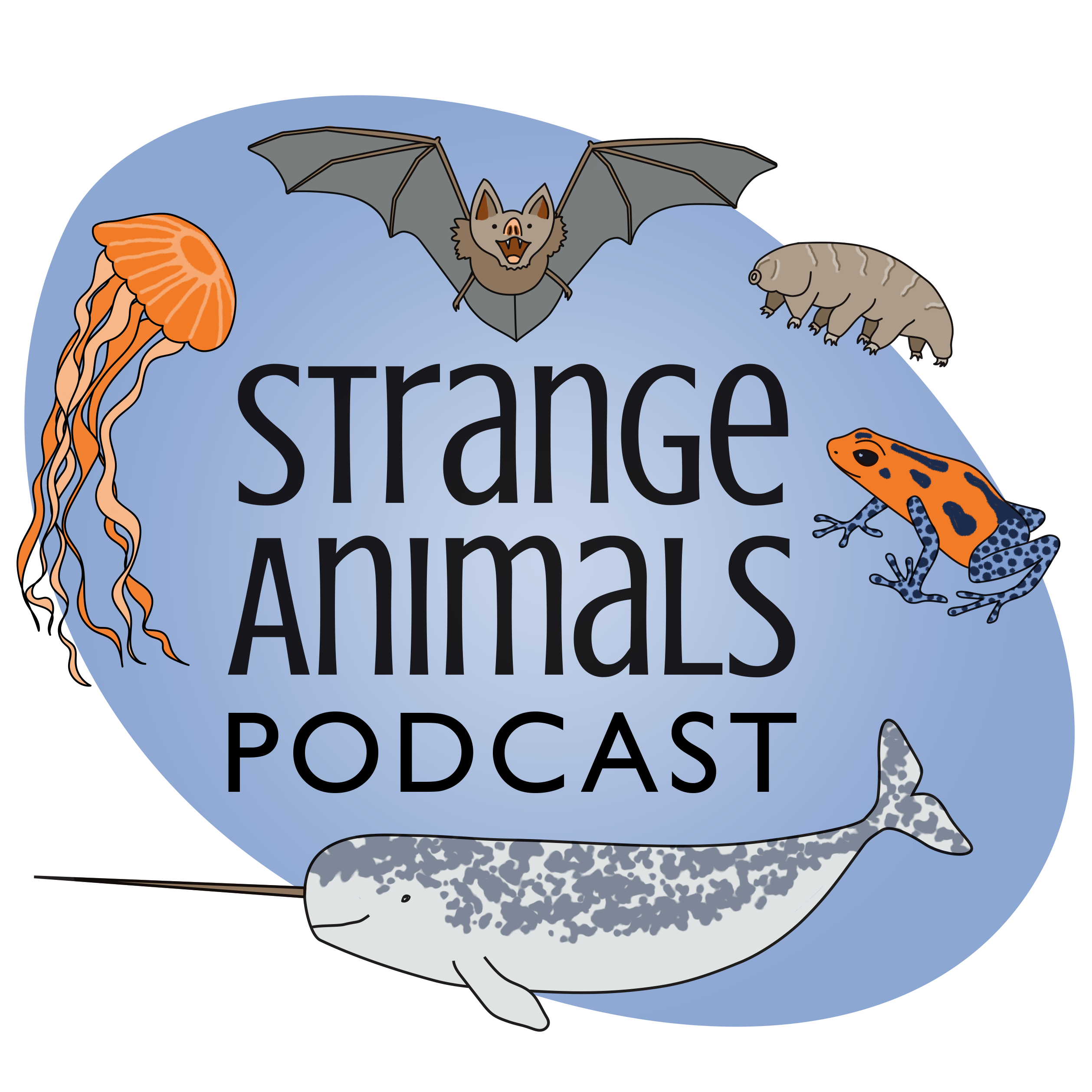Episode 308: Rescuing Stranded Whales

b"Yay, we're at the end of the year and looking forward to 2023! Boo, I caught covid and I'm still recovering, so here's a repurposed Patreon episode about whale strandings and how people help the whales!\\n\\nA minke whale calf being transferred via rescue pontoon to a boat to tow her farther out to sea than the pontoon could manage for such a big whale (photo from this article, which explains that she rejoined her mother and swam away safely):\\n\\n\\n\\nPilot whales being rescued after stranding:\\n\\n\\n\\nShow transcript:\\n\\nWelcome to Strange Animals Podcast! I\\u2019m your host, Kate Shaw.\\n\\nIt\\u2019s the last episode of 2022, and...I\\u2019ve got Covid. I\\u2019m fully vaccinated and fortunate enough to be a basically healthy person, so my symptoms were mostly quite mild and I\\u2019m feeling much better although I\\u2019m still quarantining. Because my voice isn\\u2019t really at 100% due to coughing, and because I haven\\u2019t had the energy to do any research, I decided to run an old Patreon episode this week. I always feel bad for my awesome patrons when I do this, but I really like this episode and it\\u2019s several years old now. It\\u2019s about mass whale strandings but I focused on how people help whales, so even though it\\u2019s a sad topic I hope you find it hopeful and interesting.\\n\\nWith the end of 2022, we also say goodbye to the birthday shout-outs since it was only for 2022. I hope I didn\\u2019t miss anyone. Let\\u2019s have one final birthday shout-out, though. This one\\u2019s for everyone! You\\u2019re having a birthday in 2023 so I hope it\\u2019s the best birthday you'll have had so far!\\n\\nNow, let\\u2019s learn about mass whale strandings.\\n\\n[little intro sound to help hide the fact that the audio changes a whole lot here]\\n\\nThis is a sad phenomenon where whales swim onto shore and get beached, and if they don\\u2019t get help they die. A whale breathes air, sure, but it\\u2019s evolved to be in the water full-time. As soon as it\\u2019s on land, the weight of its own body starts to smother it and it also starts to overheat.\\n\\nSometimes just one or two whales strand themselves, sometimes it\\u2019s a whole pod. We\\u2019re still not completely sure of the causes except that there\\u2019s undoubtedly more than one cause. Navy sonar may play a part, disorienting and frightening whales, even deafening them. Water pollution, disturbances of the earth\\u2019s geomagnetic field, extreme weather, injuries, disease, the whales fleeing predators or pursuing prey, and all sorts of other issues may be causes or partial causes.\\n\\nMost whales that strand themselves are toothed whales, which rely on echolocation to navigate. Many researchers think that some coastlines that slope very gently can confuse the whales, who think the seafloor is level when the water is actually getting shallower and shallower. Certain areas with gently sloping beaches have mass strandings of whales and dolphins almost every year.\\n\\nSome species of whale are more prone to stranding than others, too, especially pilot whales, which are actually dolphins despite their name. The largest mass stranding known was of pilot whales, with over a thousand of them beached in 1918 on Chatham Island in New Zealand. Pilot whales can grow more than 23 feet long, or over 7 meters, and live throughout much of the world\\u2019s oceans. They mostly eat squid but will eat fish too, and sometimes dive deeply to find food.\\n\\nChatham Island is one of those areas where whales get stranded repeatedly, as are several other islands and bays around New Zealand. The coastal waters are shallow with a number of sandbars, and the whales apparently get disoriented and don\\u2019t realize they\\u2019re coming up onto the beach instead of just crossing another sandbar. Almost every summer some pilot whales become stranded, sometimes hundreds of them.\\n\\nOne species of whale that almost never gets stranded is the killer whale, or orca. Orcas frequently hunt seals, which flee onto land. Orcas learn how to navigate beaches, and will sometimes beach themselves on purpose while attempting to catch a seal,"